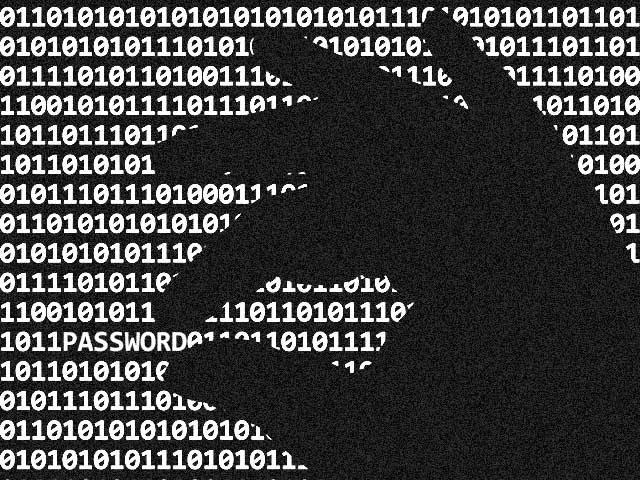
by medicaltechont | Apr 23, 2016 | Canada, Electronic Medical Records, Healthcare, Hospitals, Medical Records, Ontario, Security, Software
Important Notice:
As we have previously indicated, on March 30, 2016, the Grandview Medical Centre experienced a computer malfunction. As a result, and despite our extensive recovery efforts, some data entered into our electronic medical records has been lost.
Please rest assured that there has been no unauthorized access to your personal health information as a result of this incident.
We are currently in the process of determining the extent of the data loss as well as which patients have been affected by this unfortunate event. We will be notifying affected patients as soon as possible. We sincerely apologize for this occurrence and appreciate your patience as we identify the full extent of the loss and those affected patients.
Read more at https://www.facebook.com/gmcfht/

by medicaltechont | Feb 27, 2016 | EHR, Electronic Medical Records, Hospitals, Medical Records, Security, United States
Ransomware has seriously turned on to a noxious game of Hackers to get paid effortlessly.
Once again the heat was felt by the Los Angeles-based Presbyterian Medical Center when a group of hackers had sealed all its sensitive files and demanded $17,000 USD to regain the access to those compromised data.
The devastation of the compromised files can be pitched as:
- Compromised emails
- Lockout Electronic Medical Record System [EMR]
- Encrypted patient data
- Unable to carry CT Scans of the admitted patients
- Ferried risky patients to nearby hospitals
As the situation was grown out of wild, the hospital paid 40 Bitcoins (Roughly US $17,000) to the Ransomware Criminals to resume their medical operations after gaining the decryption keys.
“The quickest and most efficient way to restore our systems and administrative functions was to pay the ransom and obtain the decryption key,” the hospital CEO Allen Stefanek said in a letter.
All the electronic medical system were restored back soon after unlocking the encrypted file locks.
The Ransomware had stolen the nights of many network administrators, as they would be often blamed to fight up this nasty threat; instead of blaming staffs who click the illegit links in their e-mail.
http://thehackernews.com/2016/02/ransomware-medical-record.html?utm_source=THNLS&utm_medium=BelowLS&utm_campaign=LS
http://hollywoodpresbyterian.com/default/assets/File/20160217%20Memo%20from%20the%20CEO%20v2.pdf

by medicaltechont | Sep 12, 2015 | Healthcare, Hospitals
A team of scientists in Massachusetts has developed an innovative medical technology that could eliminate the problem of shortage of hearts for transplantation. The technology claims to “reanimate” the dead heart for transplant.
that could eliminate the problem of shortage of hearts for transplantation. The technology claims to “reanimate” the dead heart for transplant.
Each year, thousands of Americans require a heart for transplantation. However, the researchers say that the availability of donor hearts could be increased by almost 30 percent if the new technology is approved for medical use in the U.S.
Click here to read more: http://www.ibtimes.com.au/new-medical-technology-revives-dead-hearts-successfully-used-transplantation-uk-australia-1465254

by medicaltechont | Feb 19, 2015 | EHR, Hospitals
Scientists from the Helmholtz Zentrum München and the Technische Universität München have succeeded in a breakthrough for the further development of contrast agents and consequently improved diagnostics with imaging using MRI procedures. The results have been published in the “Angewandte Chemie International Edition” journal.
Magnetic Resonance Imaging (MRI) offers a high-resolution procedure for the diagnostic imaging of patients. Often this procedure additionally uses contrast agents that clarify certain tissue structures and pathological processes. However the image signal that is generated in the MRI does not correlate with the actual quantitative concentration of contrast agent in the tissue.
Click here to read more.
by medicaltechont | Feb 7, 2015 | Canada, Healthcare, Hospitals, private clinics
The Supreme Court of Canada decision Friday to allow people with “grievous and irremediable medical conditions” to ask for doctor-assisted suicide should be just the start of a national conversation about end-of-life care in the country, doctors say.
“The Supreme Court has lit a fire under us,” Dr. James Downar, Co-Chair of the Physicians Advisory Council for Dying with Dignity, said in an interview.
“It’s time to talk, we can’t put it off any more.”
http://www.cbc.ca/m/news/health/doctor-assisted-death-physicians-want-more-palliative-care-as-well-1.2948265

by medicaltechont | Mar 18, 2014 | Education, Healthcare, Hospitals
THE WOODLANDS, Texas–On March 13th, middle school students at The John Cooper School had a rare opportunity to learn about, and even operate, the da Vinci® Surgical System, a robot that assists surgeons in minimally invasive surgery.
Introduced in 1999 by Intuitive Surgical, the da Vinci® Surgical System is now the global leader in the emerging field of robotic-assisted minimally invasive surgery. Since the beginning, the company has consistently provided surgeons and hospitals with the tools needed to help patients return to their productive lives.
What makes this system really unique is that the surgeon does not operate over the patient, rather in a separate component known as the surgeon counsel. From there, the surgeon has full control of the robot by using finger stirrups that then move the robot’s four arms. Three of the arms hold instruments for the surgery. The fourth arm holds the camera, which allows the surgeon to see a 3D image. Brian Kiscoe, the Area Sales Manager for Intuitive Surgical, explains that the da Vinci mimics open surgery.
“Theoretically, you’ve got your left hand, your right hand, and your eyes,” said Kiscoe. “It is as if you were operating over the patient.”
Read more






